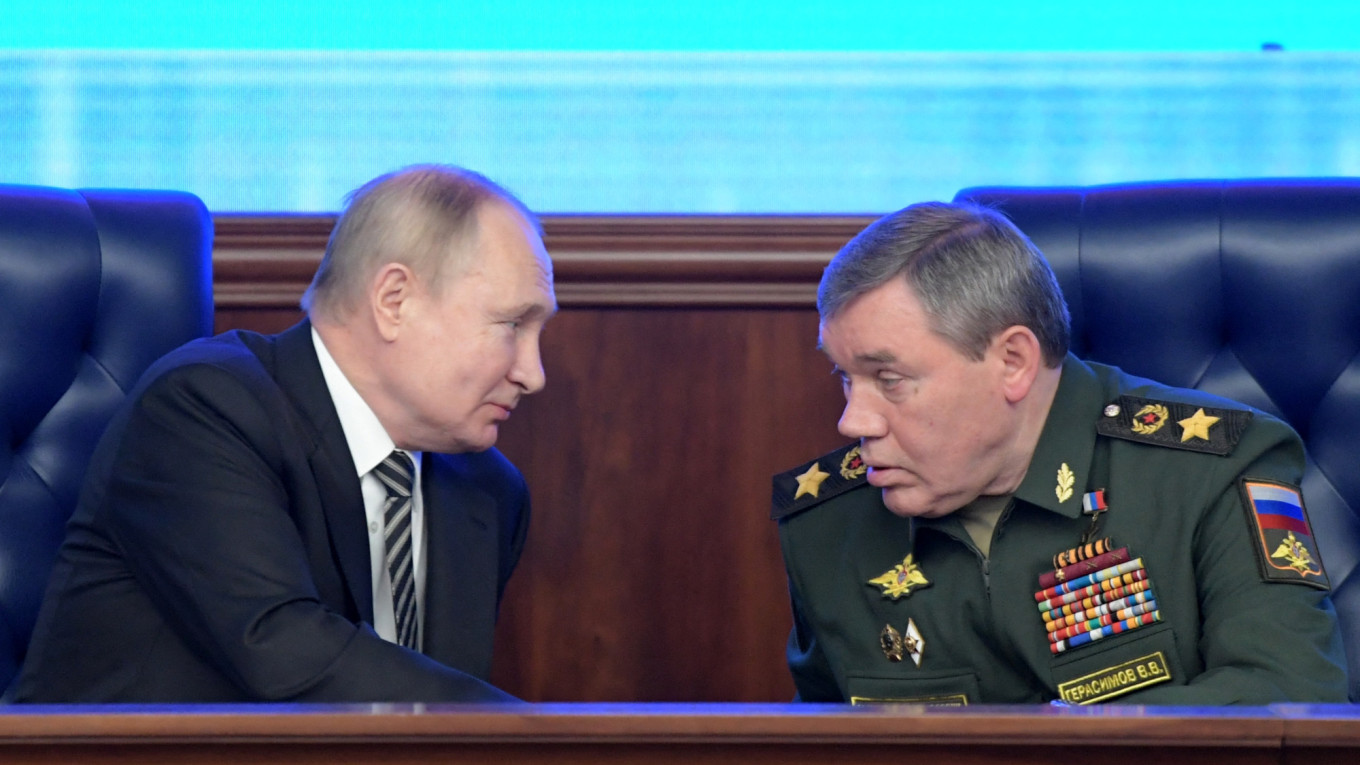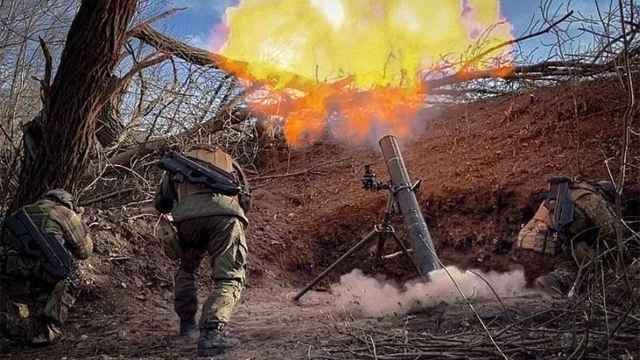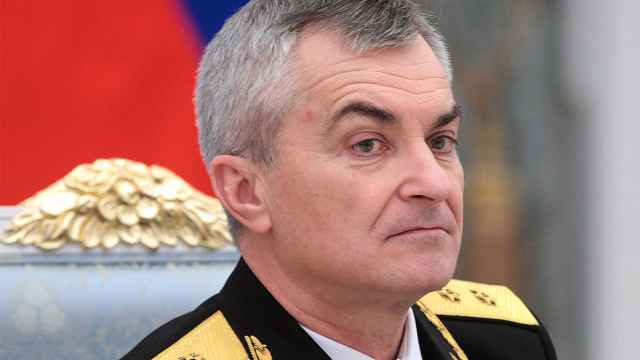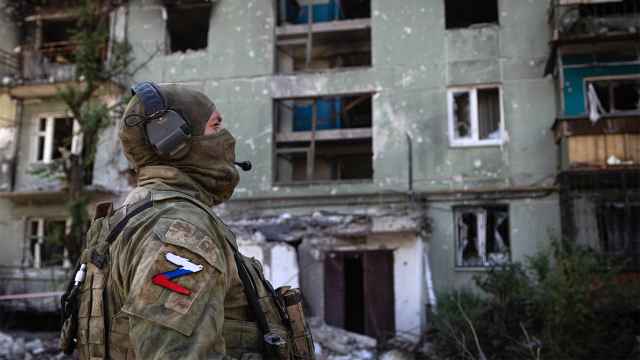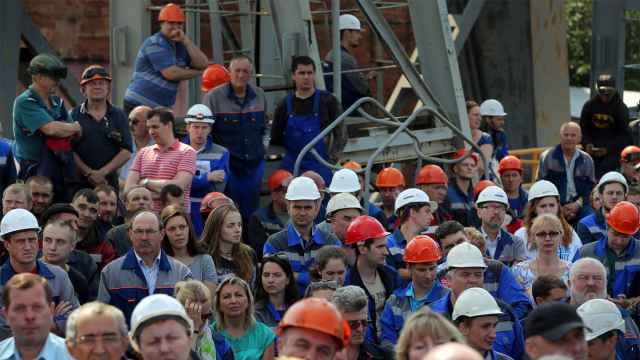Valery Gerasimov, who in a surprise move was named to lead Russian troops in Ukraine after months of setbacks, has been Moscow's top general for the past decade as chief of the general staff.
The decision to appoint the country's top soldier to lead an offensive on the ground in Ukraine is extremely unusual and has been seen by many analysts as a last-ditch effort by President Vladimir Putin to resuscitate his faltering offensive in Ukraine after a series of humiliating defeats.
"This has not happened since 1941, when Marshal Georgy Zhukov was sent to the front to command," a Moscow-based defense analyst said of the unexpected appointment, speaking on condition of anonymity.
"The chief of general staff doesn't command armies anywhere. It is a different function: they coordinate, prepare, plan. Putting him in command of field forces is unprecedented. It violates all existing rules."
Gerasimov, 67, is the Russian military's highest-ranking official after Defense Minister Sergei Shoigu and has access to Russia's nuclear codes.
Surly and unsmiling, he has often been seen briefing Putin alongside Shoigu, who has no military background, during military drills and meetings.
Observers believe Gerasimov was closely involved in devising the plan to send Russian troops into Ukraine in conditions of absolute secrecy.
After taking over as the head of the Russian army in 2012, Gerasimov has been the longest-serving chief of the general staff of the post-Soviet era, seeing the Kremlin annex Crimea from Ukraine in 2014 and intervene in Syria to buttress the regime of Bashar al-Assad the following year.
Presenting Gerasimov to Putin in 2012, the defense minister described him as "a military man to the roots of his hair" and pointed to his "colossal" experience, both at the general staff and in the field.
Gerasimov oversaw operations in the Second Chechen War during his time in the 58th Army of the North Caucasus Military District between 1998 and 2003.
Assassination Attempt
At the beginning of the Ukraine offensive, Gerasimov was believed to be closely involved in operations on the ground in Ukraine, and a Pentagon official said the general had visited the eastern region of Donbas in spring.
Gerasimov was thought to be touring the front to better understand field conditions and rally his troops after Russian forces failed to capture Kyiv.
An adviser to Ukraine's president, Oleksiy Arestovych, said in December that Ukrainian troops targeted Gerasimov during his visit to eastern Ukraine but he managed to escape.
On May 9, Gerasimov was conspicuously absent from Russia's annual Victory Day parade celebrating the Soviet Union's victory over Nazi Germany in the Second World War in 1945.
The Institute for the Study of War, a Washington-based think tank, expressed doubt that Gerasimov would be able to claw back a victory after fading "into obscurity following the collapse of Russia's flawed initial planning assumptions."
"Gerasimov is highly unlikely to successfully meet Putin's unrealistic expectations for his performance."
'Endemic failures'
As commander of Russian armed forces in Ukraine, Gerasimov replaced Sergei Surovikin, who had been in the top job for just three months and will now serve as one of Gerasimov's deputies.
The name of Surovikin's predecessor was not publicly announced, and the entire command structure during the offensive remains opaque.
"Gerasimov will likely preside over a disorganized command structure plagued by endemic, persistent, and self-reinforcing failures that he largely set into motion," the Institute for the Study of War said.
Many analysts also pointed out that by thrusting Gerasimov into the top role at the front, Putin wanted to reassert control after irregular forces fighting in Ukraine including mercenary group Wagner praised Surovikin and criticized the Russian army.
Born in the city of Kazan on the Volga, Gerasimov graduated from the Kazan Higher Tank Command School in 1977 and quickly climbed through the ranks. He commanded the Leningrad Military District from 2007 to 2009 and the Moscow Military District from 2009 to 2010.
General Pierre de Villiers, who was chief of the general staff of the French armed forces between 2014 and 2017, said he remembered Gerasimov as a no-nonsense military man.
"What I noticed was that he only recognized one thing, the balance of power," he said on French television.
A Message from The Moscow Times:
Dear readers,
We are facing unprecedented challenges. Russia's Prosecutor General's Office has designated The Moscow Times as an "undesirable" organization, criminalizing our work and putting our staff at risk of prosecution. This follows our earlier unjust labeling as a "foreign agent."
These actions are direct attempts to silence independent journalism in Russia. The authorities claim our work "discredits the decisions of the Russian leadership." We see things differently: we strive to provide accurate, unbiased reporting on Russia.
We, the journalists of The Moscow Times, refuse to be silenced. But to continue our work, we need your help.
Your support, no matter how small, makes a world of difference. If you can, please support us monthly starting from just $2. It's quick to set up, and every contribution makes a significant impact.
By supporting The Moscow Times, you're defending open, independent journalism in the face of repression. Thank you for standing with us.
Remind me later.


